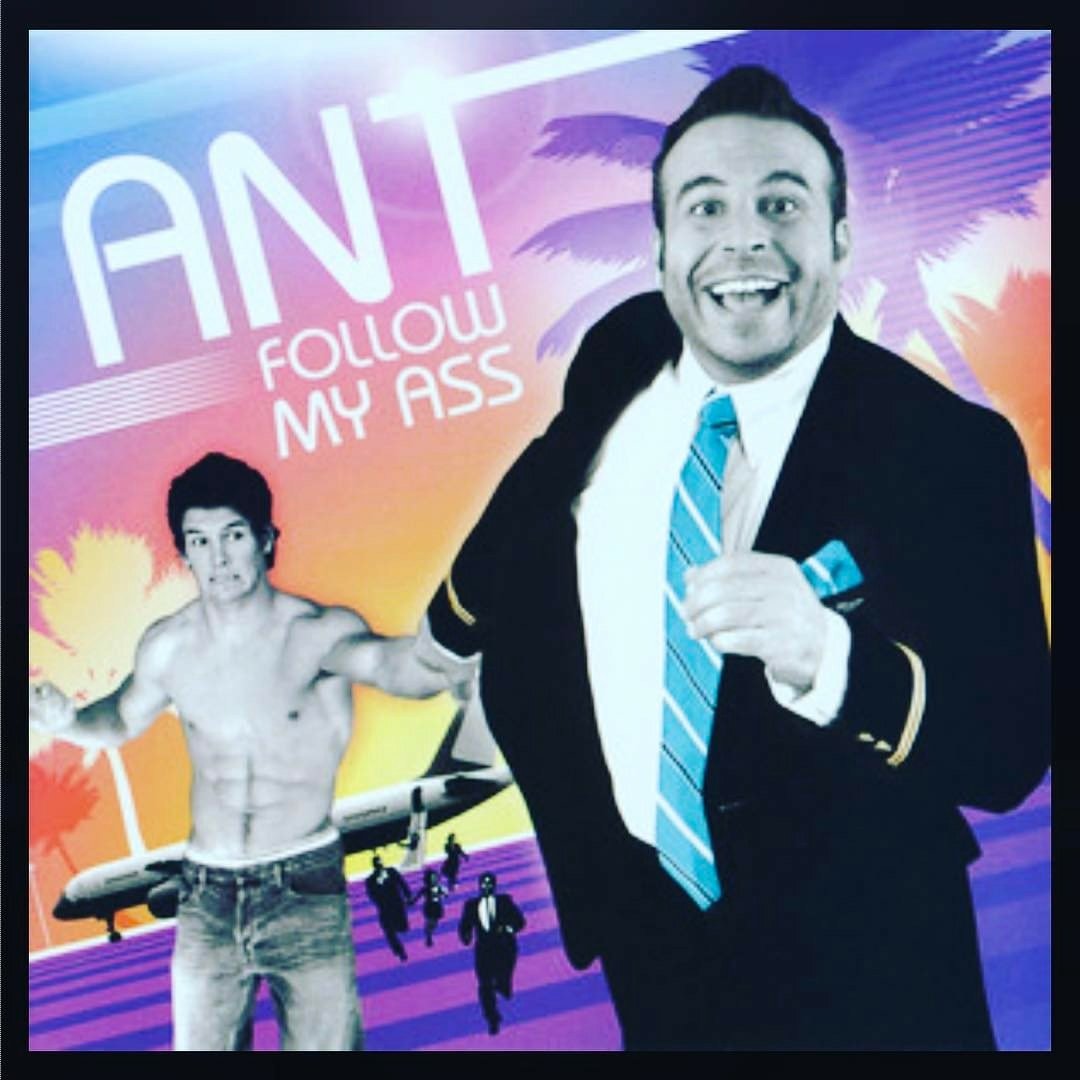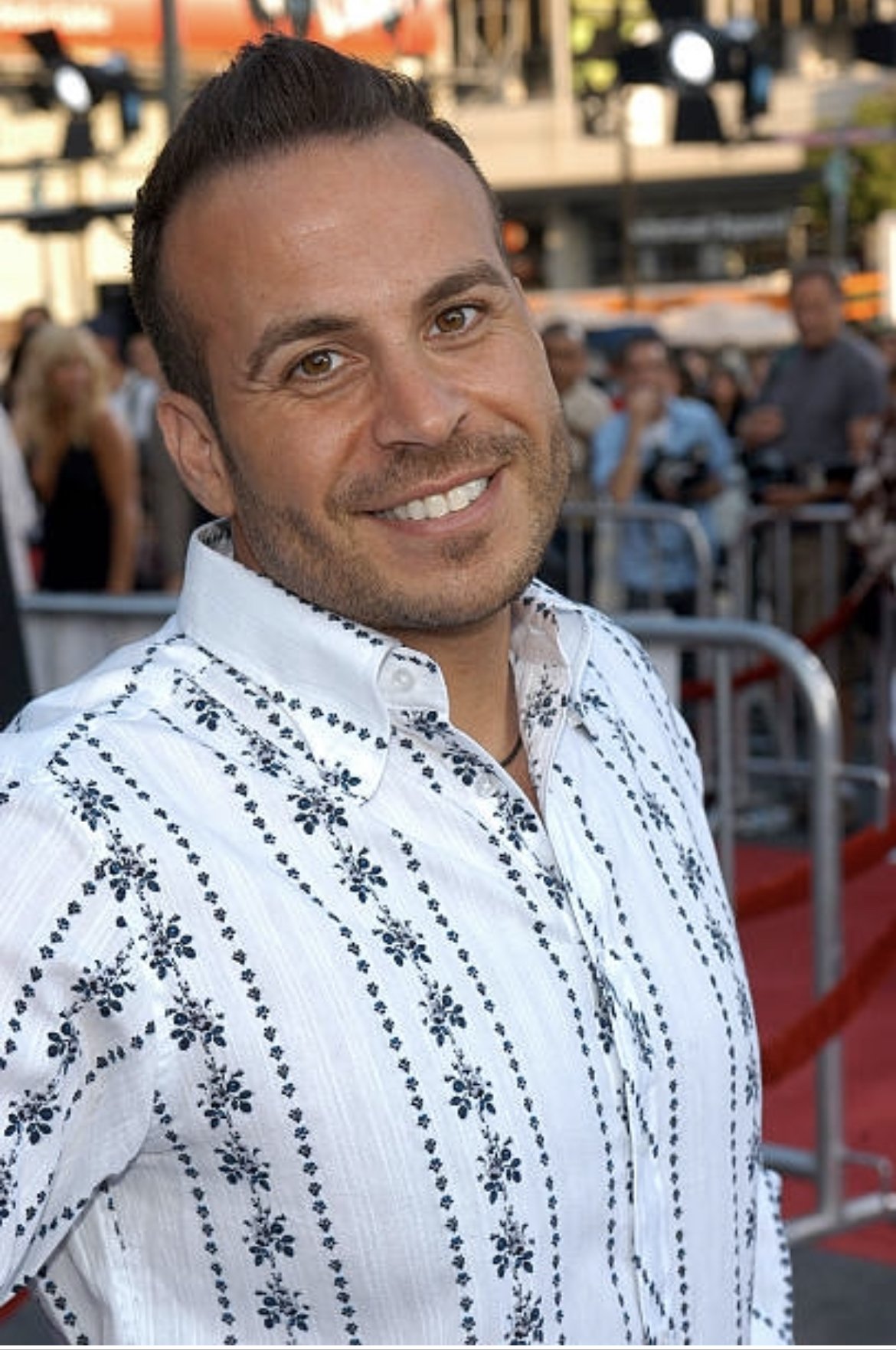
COMEDY LIVES HERE.
Thinking about doing stand-up comedy? Have you just started getting up on stage? Want to learn more?
Well, you’re in luck because you have found your resource for everything comedy for the novice stand-up comic.

Comedian ANT has been performing at comedy clubs across the US since 1991.
He has expanded his career into being a TV personality and has a boatload of knowledge to share with up-and-coming comics and those just dipping their toes in the water. This is his gift to you.


WELL, HELLO THERE!
What’s new?

Here’s the latest advice from ANT!
Just getting started? ANT drops some knowledge on you.

Why would I want to be a stand-up comic?
There are several compelling reasons for becoming a stand-up comedian, however, it's important to note that being a stand-up comedian requires dedication, persistence, and resilience. It can be a challenging career path, but for those who are passionate about comedy, the rewards can be tremendous. Plus it’s just fun!
Finding one's comedic "voice" is a journey that varies for each comedian. It typically involves a combination of self-discovery, trial and error, and honing one's skills over time. Here are a few steps that comedians often take to develop their voice:
To become a stand-up comic, you'll need a few essential tools, but remember, becoming a stand-up comic requires persistence, dedication, and continuous improvement. It's a journey that involves constant learning and adaptation. Enjoy the process and keep refining your craft along the way!
The earnings of comedians can vary greatly depending on their level of fame, experience, and success. Some comedians who have achieved significant success and popularity can earn millions of dollars per year through various sources, including stand-up comedy performances, tours, television shows, movies, endorsements, and merchandise sales. However, it's important to note that not all comedians reach such high levels of income, and many comedians earn more modest salaries.
Getting started in stand-up comedy can be an exciting and rewarding journey. Here are ten steps to help you begin. But remember, comedy is subjective, and what works for one person may not work for another. Stay persistent, be yourself, and have fun with it. Good luck on your stand-up comedy journey!


So, you’ve tried an open mic and you got bitten by the comedy bug.... Now what do you need to know?
The answer isn’t as cut-and-dried as you might hope. It’s a mix of quality, experience, and the opportunities you’ve had along the way. But let’s break it down…
Ah, the two-year mark in comedy. It’s a tricky milestone, isn’t it? By now, you’ve likely moved past the sheer terror of your first open mic (or fifty) and maybe even scored a few laughs that weren’t from your mom in the back of the room. But where should you be?
Here’s a solid checklist to make sure you keep evolving, stay true to your unique voice, and have fun on your comedic journey…
The worst part of doing stand-up comedy can vary from person to person, but some common challenges include dealing with hecklers, facing a tough crowd that doesn't respond well, and the pressure to constantly come up with new material. Additionally, the vulnerability of putting yourself out there and the fear of not being funny can be daunting. However, many comedians find these challenges to be part of the thrill and excitement of the craft.
The Resilient Comedian: Navigating the Mental Challenges of Bombing. Being a comedian can be a thrilling yet challenging endeavor, as the stage is both a platform for laughter and vulnerability. Despite their best efforts, even the most seasoned comedians experience moments when their jokes fall flat and they face the dreaded "bombing" on stage. However, how a comedian mentally deals with bombing plays a crucial role in their growth, resilience, and continued success.
As a new comedian, getting stage time is crucial for honing your skills, building confidence, and gaining exposure in the comedy world. While it can be challenging to secure stage time in the beginning, with persistence and a strategic approach, you can increase your chances of landing gigs.


Want to read it all? Here it is.
Today, we’re diving into a topic near and dear to my heart: crafting a killer standup set for television. These tips will help you deliver a set that leaves the audience laughing and the producers calling you back.
The answer isn’t as cut-and-dried as you might hope. It’s a mix of quality, experience, and the opportunities you’ve had along the way. But let’s break it down…
Ah, the two-year mark in comedy. It’s a tricky milestone, isn’t it? By now, you’ve likely moved past the sheer terror of your first open mic (or fifty) and maybe even scored a few laughs that weren’t from your mom in the back of the room. But where should you be?
You know that moment when you stumble across a premise so funny, you laugh out loud in public, and people look at you like you’ve just confessed to loving pineapple on pizza? (Which, for the record, I do—judge me.) You think, “This is it! This joke is going to kill on stage. It’ll be my new closer.” And then... it doesn’t work. Not once.
Over my years in comedy, I’ve learned that retiring a joke is as crucial as crafting one. Here’s my take on when it’s time to bid a joke farewell and why doing so can actually elevate your act.
Here’s a solid checklist to make sure you keep evolving, stay true to your unique voice, and have fun on your comedic journey…
Stand-up comedy is an art form that captivates audiences with laughter and wit. However, behind the scenes, the world of stand-up comedians is often characterized by immense pressure, stress, and the constant pursuit of comedic brilliance.
In recent years, the issue of safety and well-being for comedians has gained significant attention. The world of comedy, which thrives on pushing boundaries and challenging societal norms, occasionally blurs the line between humor and offense. One notable incident that ignited discussions surrounding comedian safety was the on-stage slap delivered by Will Smith to Chris Rock. This essay aims to examine the effects of that incident and shed light on the current state of safety for comedians.
The world of comedy can be both exhilarating and daunting, with talented individuals seeking opportunities to showcase their humor and make a mark in the entertainment industry. While talent and perseverance are vital, having a competent agent or manager can provide the necessary guidance and connections to propel comedians to success.
Standup comics develop an act for television through a combination of writing, performing, and refining their material. It's important to note that the process can vary among comedians, and some may have unique approaches or strategies. However, the key elements generally involve writing, performing, testing, and refining their material over time to create a polished act suitable for television.
Going on the road as a stand-up comedian can indeed be a lonely experience. While it's true that every comedian's journey is unique and individual experiences may vary, there are common aspects of the profession that can contribute to feelings of loneliness. Let's explore some of these factors in more detail…
The college experience is a crucial period of personal and intellectual growth for students. In addition to academic pursuits, extracurricular activities play a pivotal role in shaping well-rounded individuals. One organization that plays a vital role in enhancing college experiences is the National Association of Campus Activities (NACA).
In a world often fraught with stress, tension, and uncertainty, the timeless art of stand-up comedy serves as a beacon of light and laughter. From classic comedians to modern-day humorists, stand-up comedy plays a vital role in society, offering more than just entertainment. Its importance lies in its ability to connect people, provoke thought, and provide solace during challenging times.
The worst part of doing stand-up comedy can vary from person to person, but some common challenges include dealing with hecklers, facing a tough crowd that doesn't respond well, and the pressure to constantly come up with new material. Additionally, the vulnerability of putting yourself out there and the fear of not being funny can be daunting. However, many comedians find these challenges to be part of the thrill and excitement of the craft.
The Resilient Comedian: Navigating the Mental Challenges of Bombing. Being a comedian can be a thrilling yet challenging endeavor, as the stage is both a platform for laughter and vulnerability. Despite their best efforts, even the most seasoned comedians experience moments when their jokes fall flat and they face the dreaded "bombing" on stage. However, how a comedian mentally deals with bombing plays a crucial role in their growth, resilience, and continued success.
Stand-up comedy is a form of entertainment that has been around for centuries. It is a way for people to share their thoughts and experiences in a humorous way. Stand-up comics are important because they can make us laugh, think, and even challenge us. There are many reasons why stand-up comics are important…
As a new comedian, getting stage time is crucial for honing your skills, building confidence, and gaining exposure in the comedy world. While it can be challenging to secure stage time in the beginning, with persistence and a strategic approach, you can increase your chances of landing gigs.
Stage fright is a common fear that many people experience when they have to perform in front of others. It can cause a range of physical and emotional symptoms, but there are professionals who can help. Stage fright is a common fear, but it is possible to overcome it. With practice and preparation, you can learn to manage your anxiety and deliver a confident performance.
Finding one's comedic "voice" is a journey that varies for each comedian. It typically involves a combination of self-discovery, trial and error, and honing one's skills over time. Here are a few steps that comedians often take to develop their voice:
To become a stand-up comic, you'll need a few essential tools, but remember, becoming a stand-up comic requires persistence, dedication, and continuous improvement. It's a journey that involves constant learning and adaptation. Enjoy the process and keep refining your craft along the way!
Here are some reasons why so many people are wanting to try standup comedy and succeeding. Whatever the reason, it's clear that standup comedy is having a moment right now. And if you're thinking about giving it a try, I say go for it! It could be the start of a great new hobby or even a career.
Stand-up comedy, also known as stand-up, is a form of entertainment that involves a performer delivering humorous monologues or routines to an audience. It is one of the oldest and most popular forms of comedy, with a rich history that spans several centuries. From its origins in ancient Greece to the modern-day comedy clubs and streaming platforms, stand-up comedy has evolved and shaped the way we perceive humor and social commentary.
The earnings of comedians can vary greatly depending on their level of fame, experience, and success. Some comedians who have achieved significant success and popularity can earn millions of dollars per year through various sources, including stand-up comedy performances, tours, television shows, movies, endorsements, and merchandise sales. However, it's important to note that not all comedians reach such high levels of income, and many comedians earn more modest salaries.
Getting started in stand-up comedy can be an exciting and rewarding journey. Here are ten steps to help you begin. But remember, comedy is subjective, and what works for one person may not work for another. Stay persistent, be yourself, and have fun with it. Good luck on your stand-up comedy journey!
There are several compelling reasons for becoming a stand-up comedian, however, it's important to note that being a stand-up comedian requires dedication, persistence, and resilience. It can be a challenging career path, but for those who are passionate about comedy, the rewards can be tremendous. Plus it’s just fun!



About ANT
Hyper, irreverent, and just downright fabulous, ANT (spelled in caps) has steadily climbed the comedy hill to become one of the most successful comedians of our time. A regular guest on The Tonight Show with Jay Leno and The Tyra Banks show, ANT is the only comedian to appear on all five seasons of NBC’s hit series Last Comic Standing. He is recognized as the host VH1′s Celebrity Fit Club and in the LOGO series U.S. of ANT. ANT ventured out of his comfort zone, appearing in Celebracadabra, a competition show featuring magic and celebrities for ABC. His hit stand-up DVD ANT: America’s Ready and comedy CD Follow My Ass! have sold tens of thousands of copies and are available in stores nationwide and online at every CD/DVD retailer including Amazon. ANT’s new standup comedy blog theant.com is designed to help new and aspiring comedians break into standup comedy and help young comedians hone an act.

























Stage fright is a common fear that many people experience when they have to perform in front of others. It can cause a range of physical and emotional symptoms, but there are professionals who can help. Stage fright is a common fear, but it is possible to overcome it. With practice and preparation, you can learn to manage your anxiety and deliver a confident performance.